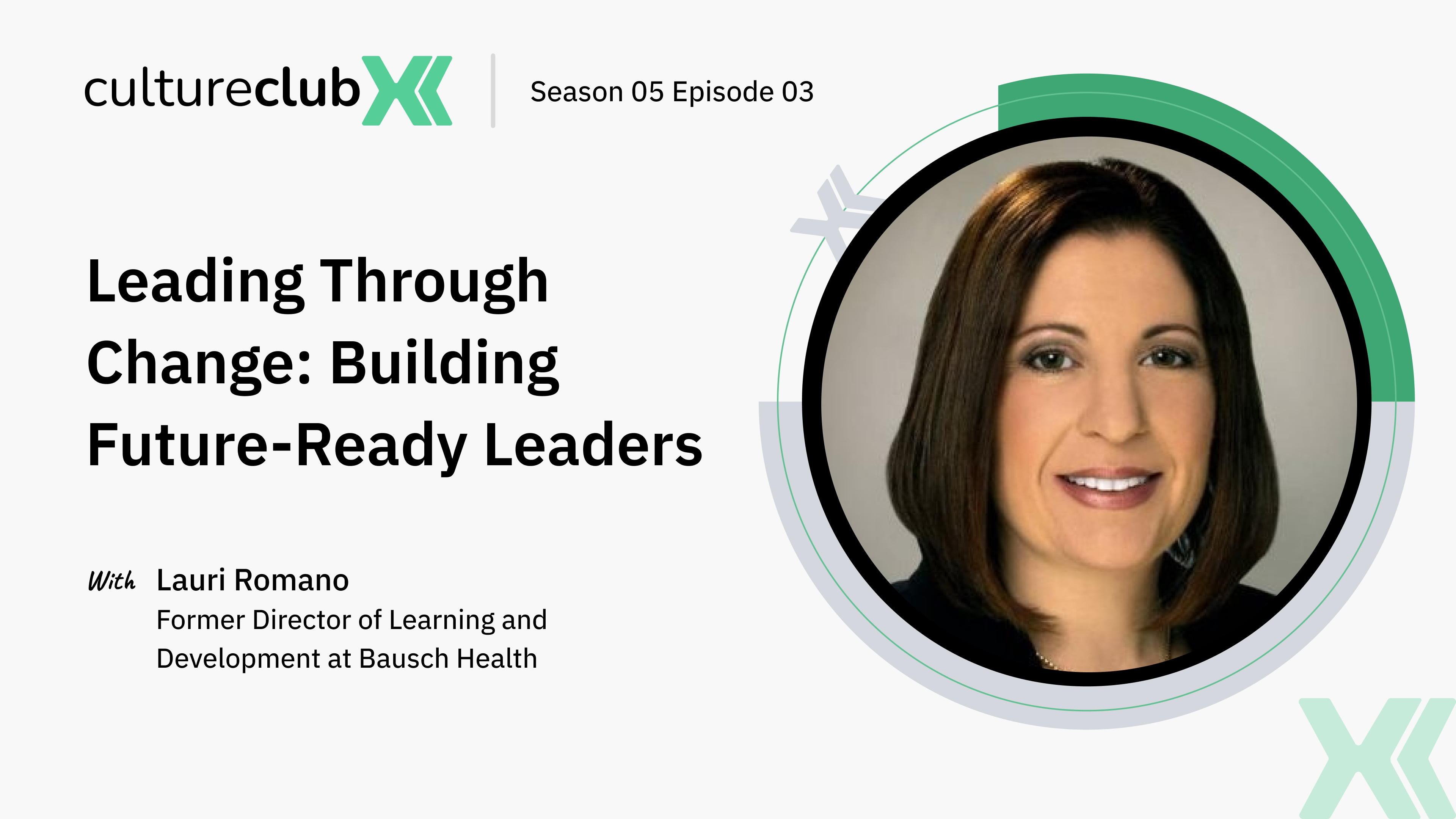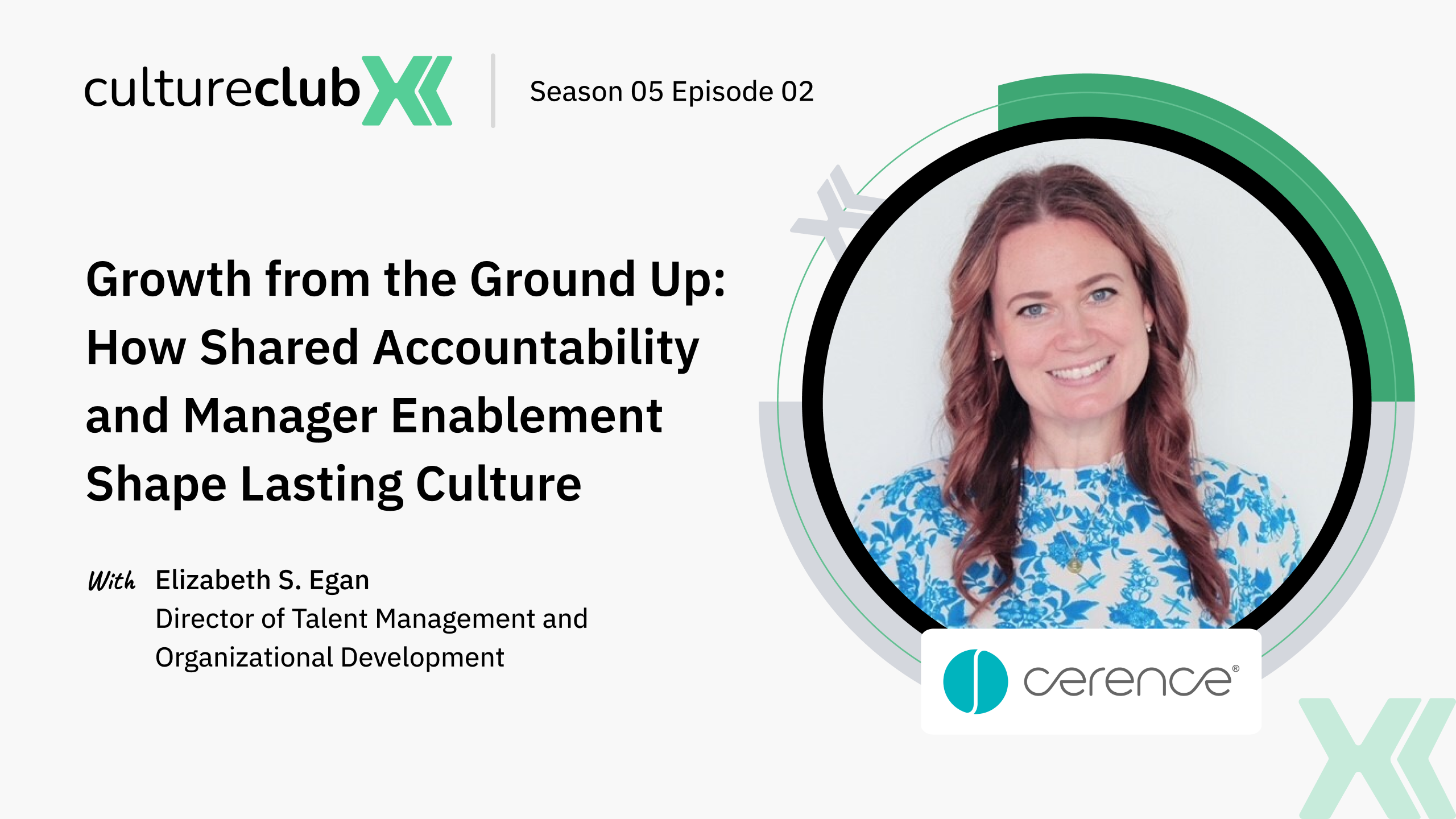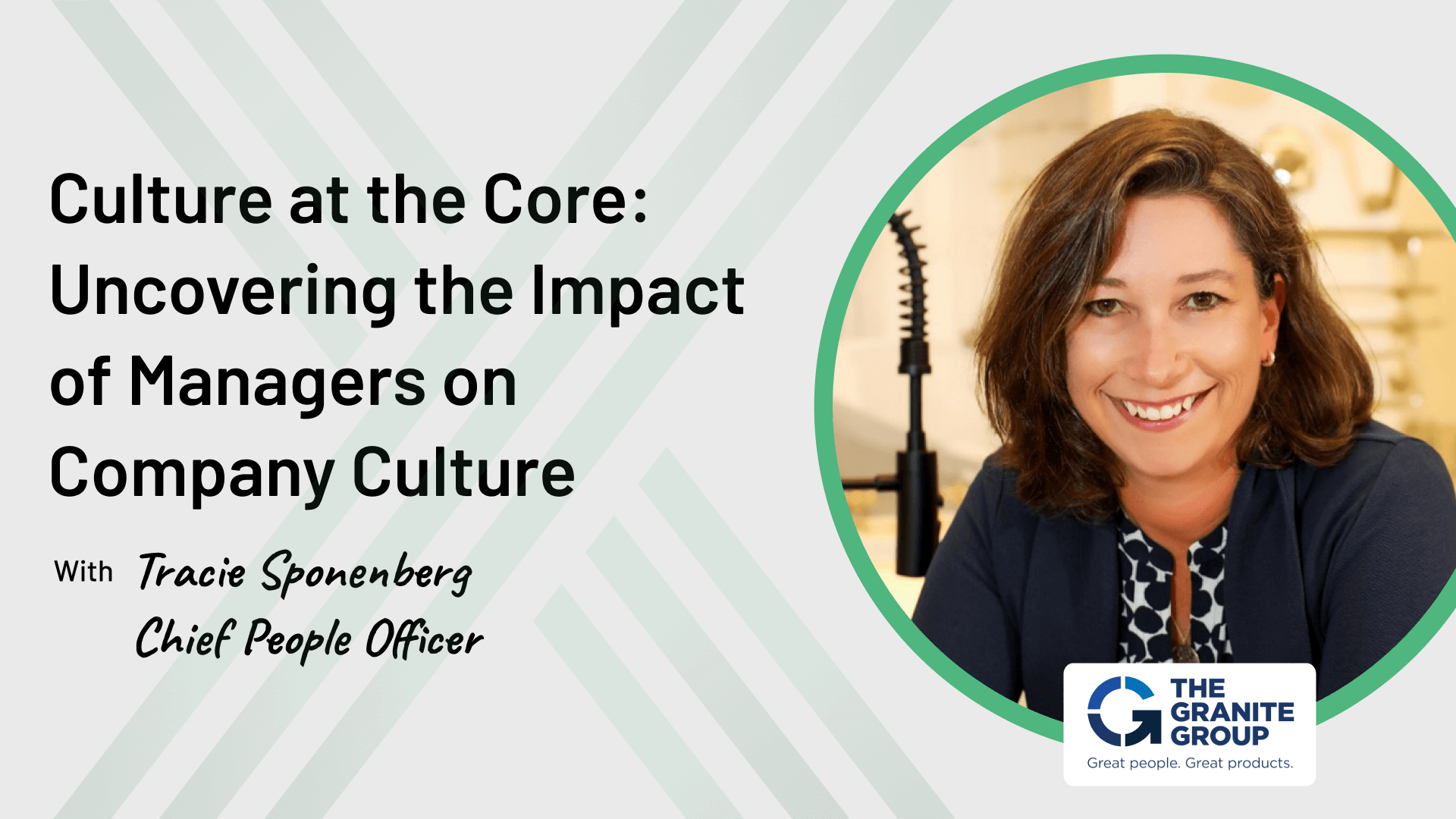S05 E01: Addressing local challenges while building a unified global workplace culture
About Heather
Heather Kane is a transformational change leader known for turning complexity into progress across global organizations.
With a unique blend of expertise in business transformation, change management, talent development, and global marketing, she brings a strategic lens to solving tough challenges that span people, process, and performance.
At Robertshaw, Heather leads strategic initiatives as Senior Manager of Change Management and Employee Engagement, using a cross-functional approach to drive alignment between business transformation and cultural growth.
Her career spans Fortune 500 companies and startups across industries, including consumer goods, retail, and manufacturing. She has led change efforts for digital transformations, SAP rollouts, and organizational redesigns—often impacting thousands of employees across geographies.
A Loyola University Chicago alum, she’s also a recognized speaker and active leader in the community.
Here’s the gist of what Heather speaks about in this video
- Why engagement means different things to different teams and why one-size-fits-all doesn't work, especially across regions, languages and roles.
- The cultural and linguistic nuances companies must consider when building unified global values and messaging.
- Key barriers that frontline and blue-collar employees face in connecting with company culture, and how direct access and relevance can overcome them.
- How organizations can build communication systems that are inclusive, mobile-accessible, multilingual, and responsive to feedback.
- The role of technology (like CultureMonkey) in democratizing employee voice, enabling feedback, and turning insights into local action.
- The importance of equipping managers to personalize communication and lead meaningful change across geographies.
Catch all this and more with Heather Kane in S05 E01 of CultureClub X.
Transcript
Natalie Thomas: All right. Hello, everybody, and welcome to the fifth season of CultureClubX powered by CultureMonkey. I am your host, Natalie Thomas, and CultureMonkey is an enterprise employee engagement platform that helps people leaders listen to their employees enhance workplace cultures.
CultureClubX is our community initiative where global leaders share their best practices from their experiences and discuss all things company culture.
Natalie Thomas: After the resounding success of our last season, we are back with our latest episode. And we are very excited to kickstart our fifth season of CultureClubX with Heather Kane, Senior Manager, Change Management and Employee Engagement at Robertshaw.
Welcome, Heather. It is a pleasure to have you here today.
Heather Kane: Hi Natalie, nice to talk to you.
Natalie Thomas: Nice to talk to you as well in a little introduction before we dive into it. Heather Kane is a transformational change leader known for turning complexity into progress across global organizations. With a unique blend of expertise in business transformation, change management, talent development, and global marketing, she brings a strategic lens to solving tough challenges that span people, process, and performance.
Natalie Thomas: At Robertshaw she leads strategic initiatives as senior manager of change management and employee engagement, using a cross-functional approach to drive alignment between business transformation and cultural growth. Her career spans Fortune 500 companies and startups across industries, including consumer goods, retail, and manufacturing. She has led change efforts for digital transformations, SAP rollouts, and organizational redesigns, often impacting thousands of employees across geographies.
Aloy Ola, which is a tongue twister, must say, University Chicago alum. She's also a recognized speaker and active leader in the community. Heather, it is so great to have you with us today and welcome again to CultureClubX's video-cast on addressing local challenges while building a unified global workplace culture. Welcome to the show.
Heather Kane: Thank you.
Natalie Thomas: And before we go into some deeper questions today, just please begin by telling us more about yourself and your organization.
Heather Kane: I joined Robertshaw almost two years ago now. Robertshaw controls/does a lot of things in gas and water flow technology. So most people in the United States and Mexico will have something in their home that's been made by Robertshaw. So we're a global company and we are doing a complete cultural transformation. We're in nine countries, we have 10 languages and we have about 4,600 employees. 80% are in Mexico and 80% are frontline workers. So we've got some unique challenges to focus on.
Natalie Thomas: Absolutely, and that's very impressive. And I just, I'm just so excited to have this discussion with you today. So without further due, let's kick it off. Let's get started. And why do you think engagement can mean different things to different teams, especially across regions and functions?
Heather Kane: It's.. Yeah, cultural change is very different. And so there are some basic changes we think about or differences we think about, like language, right? Language, time zones. And of course, those are challenges, especially like in our company, we have languages that are less commonly used, but also even in teams and functions, they work differently. Their daily work experience, not even cross-country, but even across teams like a manufacturing experience versus the office experience. And that can all make it really challenging to get a common definition of any part of engagement.
Natalie Thomas: Wow. And why is it so important for companies to really respect the local ways of working while still nurturing a shared culture? And what also makes that balance between the two so challenging?
Heather Kane: Yeah, it's hard to address large populations in many different cultures. And so there's everything from things that literally don't translate. We were installing, establishing core values, and one of them was going to be accountability. And we found that in two of our countries, the word didn't even translate. Would a translation service give us some words to put in there? Absolutely, but they didn't really resonate with people on the ground. And so if we wanted that, we needed to come up with a word that was gonna work.
And then again, even beyond the classics of what word means this or what translation looks like, people just wanna be understood. So it's not just about doing a translation or putting a concept out there. They wanna feel that you understand them and also their culture. And again, when you're in many different cultures, it's really challenging to find people who can manage that at a high level, but also execute at a local, relevant level.
Natalie Thomas: Yeah, that's really interesting because you say, like, the first thing is, you know, as being a part of a team, we do want to feel connected, right? We want to feel connected and we want to be heard. But then there's that extra layer of the language too. And finding the words that really everybody can understand. And then on top of that, the culture just in general. But I'm sure it's been such a learning experience for everybody going through this and working with so many people on an international level as well.
Heather Kane: It really is, so it's just amazing to think how for how many years the company had communicated in English only with only 200 US employees.
Natalie Thomas: This is fascinating. So even to just dive into everything further, what are some common barriers that prevent frontline or blue collar employees from feeling truly connected to maybe a company's values, their vision, so to say?
Heather Kane: Yeah, We found it really gets down to two pieces - direct access. So you don't have to wait for your manager or supervisor, or worse for it to cascade from corporate to the VP to the manager to the supervisor and then hopefully the message gets to you and hopefully someone translated it before you get there. So if people have direct access then they have a choice. I realize they're not gonna wanna see everything, but at least they have a choice to go independently or for us to push things out independently to them.
And then relevance again. Everyone's always excited about the global meeting or the new initiative. But most people, if you want them to keep coming back and choose to use their direct access, it has to be relevant for what they're doing.
Natalie Thomas: Right, Right. And going into our next question, kind of weaving into that, for your experience, what does it really take to create these communication systems that do feel fair and inclusive, regardless of role, location, or access within the company?
Heather Kane: We've been doing a lot more of that to improve our communications and installing an internet and things like that. And some of the things that were absolute must haves, mobile access. So you don't need an email. You can access it anywhere in the world on your phone. Multilingual translations. We really have to leverage AI these days, right? And it's about making it work for you and your people. So multilingual is good, even though we know some of our languages are less commonly used. And so they won't have as strong translations and, you know, those large learning models, for example, still it's a starting point.
So and then locally focused content like we just spoke about so that way we can choose what people are going to see and hear based on where they are and what they're doing so it becomes something that's relevant to them. And then this whole concept of we're responding to your feedback so that people don't forget that you know we did we did do our engagement surveys and we have gotten feedback from you and this is what we're doing to respond to it to really kind of validate that we hear you and now we're doing something about it and then we can get more feedback and build from there.
Natalie Thomas: Yeah, exactly. It's like the listening aspect to it. But then also just in general with technology now bringing so many people together, especially just the last few years alone, I would say, and the changes that we're seeing just with like rapid fire in the technology space. I mean, we see it right with like even social media of how like it's.. the world is becoming so much stronger or smaller, I should say.
Heather Kane: Yeah, exactly.
Natalie Thomas: And how so many more people are just so connected now on a deeper level where I think as before we felt a little bit maybe more separate from each other, but now we're coming together, which is interesting to see.
Heather Kane: Yeah, more doesn't exist at work, people will make it exist offline and it's fascinating how they've done that. so now we just want to bring more of that work related group and discussions back into the workplace a little more to build that connection with that audience.
Natalie Thomas: And what really gets in the way of turning employee input into this meaningful change? And why do some organizations struggle to follow through with this?
Heather Kane: So, the thing with change is it happens one person at a time. And so when you have a lot of people and a lot of differences, cultural, linguistic type of role, how you spend your day, it just makes it so hard to be able to focus on that. You know, people, companies are starting to invest more, but you have to break down those audiences. So what's important to a headquarters office worker in Chicago is totally different than what someone cares about if you're a frontline worker in Mexico. Not just if I translate it, even then, they probably still don't want to hear the corporate messages so much as, what’s going on in their local plant, you know, that week.
And so being able to break down our audiences and then take them through a change process, because that's the other piece, is that the change takes time, because each person has to choose to say, this is what I did before. I understand why I want it, why I'm going to go do this new behavior. And then they have to know how to do it and have it reinforced and that constant feedback loop of what's going on until they choose to say, yeah, this makes sense for me. I'm going to fold it into my daily process. That could be fast or could be long, but treating everybody as, you know, Mexico or the United States, or maybe it's just all the operations versus finance, it's not enough breaking it down and using our managers, equipping our managers to be able to kind of get that information and really focus things. That's what's going to drive change. And that's why it gets so difficult at large organizations.
Natalie Thomas: Even going back to that technology piece with everything, how do you think technology can help enable managers to understand what culture feels like on the ground, especially when teams operate in just very different ways around the world? And I know we touched a bit about technology, but I wanted to ask this as well.
Heather Kane: Yeah, honestly using CultureMonkey has been huge because that allows us to collect all that information and it really does level the playing field, if you will, because QR codes and easy access and it's just made it possible and we've been really excited by the response we've had. So technology helps us there, the translations, right? both of questions and also open comments, like just being able for managers to get that other layer down of open feedback from employees. And then being able to have it translated into your own language so you can understand it and work with your global team. So we use technology a lot that way.
And then this idea that by improving our communication vehicles globally, we're then gonna be able to help have more direct conversation and share with employees, know, things that are changing and relaying that messaging with a local twist. And so really that technology has just been huge for us and we would never have been able to do this without those pieces. It just wouldn't be possible.
Natalie Thomas: Wow, no, that's really interesting. And do you feel that there's any big changes even coming up more with technology that's going to even bridge people together more? Is that something like a trend that you've also seen?
Heather Kane: Definitely because, again, change is individual, but also technology use and adoption is individual, so people have different experiences. So no one's really worried about having everyone have access using a cell phone. But then some of those other pieces, even some simple analytics can be complex for people if they're not used to using it. So the speed at which technology can enable us to do things is probably faster than employees or individuals can learn how to use the outputs effectively and then use it to make forward-looking type of decisions or analytics that will drive the business forward. So I think there's going to be a gap for human beings to catch up to really take advantage of some of these tools effectively.
Natalie Thomas: No, definitely. And thank you just so much for your insight and for our conversation today. And I really feel that today's session reminded us that employee engagement just isn't this one size fits all strategy. That it's layered, it's an evolving process that needs to really reflect both the local realities of the team and the broader culture that we aim to build.
Natalie Thomas: And really from recognizing the unique challenges faced by the frontline and blue collar workers to even understanding how communication, technology and trust all play a role in shaping the connected workplace. So thank you so much. Because this episode really gave us a deeper look at what truly makes or what it truly takes to, to make every single employee feel heard, valued, and just a part of a bigger picture.
Natalie Thomas: And just for everybody listening, CultureMonkey helps enterprises decode employee sentiment and engagement at every level, empowering leaders and managers with the global insights they need to build trust, strengthen culture, and drive meaningful change across locations. So if you're looking to improve engagement across your organization, go ahead and visit CultureMonkey.io to see how we can help make every voice count.
Thank you so much, Heather. We learned a lot from you today, and please let our viewers know how they can connect with you to share their thoughts, ask some questions about this topic.
Heather Kane: Sure, Natalie, thank you. I'm available on LinkedIn. Please reach out and connect or ask questions. I'm always happy to share my general experience and also my CultureMonkey experience with other colleagues and learn more from them about engagement and employee change. So thank you.
Natalie Thomas: Awesome. So again, thank you, Heather, for sharing your wisdom, lived experience, and practical advice with us today, because conversations like this really help us move the needle on what modern engagement can and should look like. And for everybody tuning in, don't forget to follow, share, and rate the podcast. As always, keep listening to your people and leading with purpose. And that is all we have for you in this episode of CultureClubX powered by CultureMonkey today. Until next time, we hope to see you all again soon. Thank you.



